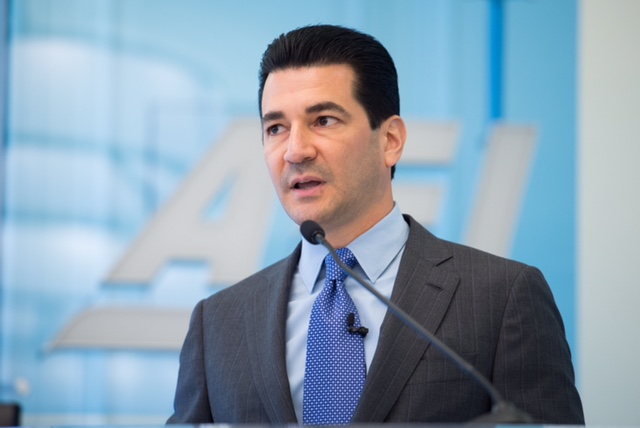Gottlieb outlines FDA digital health plan

FDA commissioner Scott Gottlieb has revealed plans to overhaul US regulation of digital health innovations.
In a blog post, Gottlieb focuses on a new initiative he calls the Digital Health Innovation Plan.
The plan intends to foster medical technology innovation whilst streamlining its route to market.
A major part of the plan is to clarify regulations around mobile health apps. As Gottlieb states, 165,000 health-related apps were available for iOS and Android devices last year. By the end of this year, those apps will have been downloaded 1.7 billion times in total.
"For these and other digital technologies to take hold and reach their fullest potential, it is critical that FDA be forward-leaning in making sure that we have implemented the right policies and regulatory tools, and communicated them clearly, to encourage safe and effective innovation," writes Gottlieb.
"To encourage innovation, FDA should carry out its mission to protect and promote the public health through policies that are clear enough for developers to apply them on their own, without having to seek out, on a case-by-case basis, FDA’s position on every individual technological change or iterative software development."
Part of the plan's implementation will be to begin addressing digital health provisions stated in the 21st Century Cures Act. That includes "publishing guidance to further clarify what falls outside the scope of FDA regulation."
This will help bring 'low-risk' technologies to market, as well as adding some not mentioned in the Act.
Pilot scheme
Gottlieb also mentions the launch of a new pilot scheme for technology regulation. Still under development, this will investigate the creation of a pre-market certification programme enabling low-risk technologies to be marketed without FDA review. It will also aim to streamline marketing of high-risk technologies.
The scheme plans to leverage real-world data as a post-market method to support new and evolving product functions.
The Medical Device Innovation Consortium's (MDIC) National Evaluation System for health Technology (NEST) is specifically mentioned as a possible real-world database for cases like these.
NEST gathers such data from a number of sources including electronic health records, payer claims and registries. The FDA is working with the MDIC to speed NEST's launch to the end of 2019.
"Through these and other steps, FDA will help innovators navigate a new, modern regulatory process so that promising, safe and effective developments in digital health can advance more quickly and responsibly, and Americans can reap the full benefits from these innovations," says Gottlieb. "Our goal is to make sure that FDA has the most modern and efficient regulatory approaches when it comes to evaluating new, beneficial technologies."
The FDA is currently in the process of creating a digital health unit within its Center for Devices and Radiological Health (CDRH). According to FDA associate director of digital health, Bakul Patel, its creation is on track.












